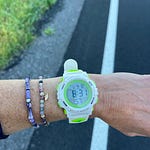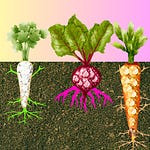We’re back! We recorded another video Noosletter this week so you have the option to read, listen (you can download and listen on Spotify or Apple music!) or watch. We had a lot of fun researching and recording this one, and as always, it’s a “one take wonder” — we go over our notes, hit record and let it rip (no editing… who has time for that??)! We hope you enjoyed last week’s Noosletter about supporting our immune systems with whole foods (anyone throw more red bell pepper or garlic in their meals this week?!), and not getting wrapped up in the “health optimization” that seems to be sweeping the internet. This week we talk about the placebo effect and how we can use it to make healthier choices in the long run. We hope you enjoy and even experiment with shifting your mindset around some healthy foods!
What is a placebo and its effect?
The placebo effect demonstrates the powerful connection between mind and body. A placebo will not shrink a tumor or reduce your cholesterol, per say, but it does contribute to dopamine release and will change your perception of pain.
Let’s break it down… Placebo is a Latin word that means “I shall please” (really had to dust the cobwebs off from my Latin teaching days for this one 🤣). By definition, a placebo is an inactive substance or treatment that has no known medical benefits. It often looks identical to the real treatment being studied. Common examples include: sugar pills, saline injections, and sham surgeries (we highlighted some really cool studies in the video!). In clinical trials, pharmaceutical companies must show not only that their drug has the desired effects, but that the effects are significantly greater than those of a placebo drug.
In the video, we touched on a brief history. Dr. Henry Beecher was an influential American anesthesiologist and medical researcher who made significant contributions to the understanding of the placebo effect. Working as a medic in WWII, he ran out of morphine while tending to wounded soldiers. Determined to provide the wounded soldiers with a sense of care and treatment, Dr. Beecher resorted to administering a saline solution while telling them it was morphine. To his surprise, 40% of the soldiers reported that the saline had reduced their pain.
Perhaps you’ve experienced the benefits of placebo effect in a doctor’s office — Ted Kaptchuk, acupuncturist and placebo researcher/guru at Harvard, found in his studies that the placebo effect is many effects woven together: how kind the doctor is, how nice the room is, how expensive the pill is — he refers to these actions as the Ritual. The Ritual matters — the more you perceive the drug to be effective or expensive, or you believe that the physician really cares about you, the greater of a placebo response you’re going to have.
On the other side of the coin, there is the Nocebo (“I shall harm”) Effect — which occurs when you take a placebo pill and you experience the side effects listed. Read that again! For example, patients took a sugar pill and listened to adverse side effects (but it’s just sugar, nothing should happen, right?!) and then experienced the side effects — like hives!!! Can you imagine? It just goes to show how powerful the brain can be.
So how can we use the placebo effect when it comes to nutrition?
How we perceive something may alter how we feel — if you believe your meal to be nutritious or good for you, does it taste better? Do you enjoy it more? Anne’s 6-year-old daughter came to that realization this week, after Anne had visited her classroom to give the first graders a “garden to table” lesson with vegetables from the school’s garden. Learning how certain foods can help your body encouraged Caroline to try a food she would normally shoo away. Perhaps the same can be true for you!
Sometimes shifting our mindframe can help us eat foods we normally wouldn’t try or thought we didn’t like. If we know all the wonderful things foods can do for us, we may be more apt to eat them. When we reframe our perception of food, as “this is nourishing food that will support my body,” we may look at something like broccoli or [insert least favorite “healthy” food] with a different lens! Do you enjoy it more with this perspective? By changing our belief or perception of food, we can use the placebo effect to trick or prime our brains to enjoy it more. Keep in mind, though, just like placebo pills can’t change things physically, per say, we can’t change the way we digest food or how it’s used in our body with our thoughts. But, we can affect the way we enjoy them, increasing the likelihood we’ll consume them again! So, can using this mindframe encourage us to eat more healthy foods and enjoy them more?
Playing devil’s advocate
Some may read this and think — why would I want to trick my brain into eating a salad or boring chicken breast (again, insert you least attractive healthy food)? Life is short, I want to enjoy what I eat, I don’t want to eat that sh*t!!
We get it — life is short, and we should find pleasure in our foods! We are in the camp that the food we eat should bring us both health and happiness. We wrote about this in a recent Noosletter. We find happiness in a range of foods — some are nutrient dense, some are not. We think it’s important that we find balance in the variety and frequency of foods we eat—it’s about moderation — it should be a “both, and” situation, not an “either, or.”
Using the placebo effect to make healthier choices more appealing in the long run…
At Noos we are trying to create more options for a healthy and sustainable lifestyle, and by shifting our mindset to “this food is going to do my body so much good,” we may be able to enjoy more foods and feel the benefits. By changing the way we perceive foods, we can move away from being motivated solely by immediate sensory pleasure, and instead develop an appreciation for the deeper benefits that different foods provide for the body.
So, if you’re curious, try this experiment next time you’re eating something that doesn’t already elicit pleasure — enjoy it by thinking about all of the wonderful things it does for your body…does it taste different? Your mind can be a powerful healing tool when given the chance!
Until next time…














